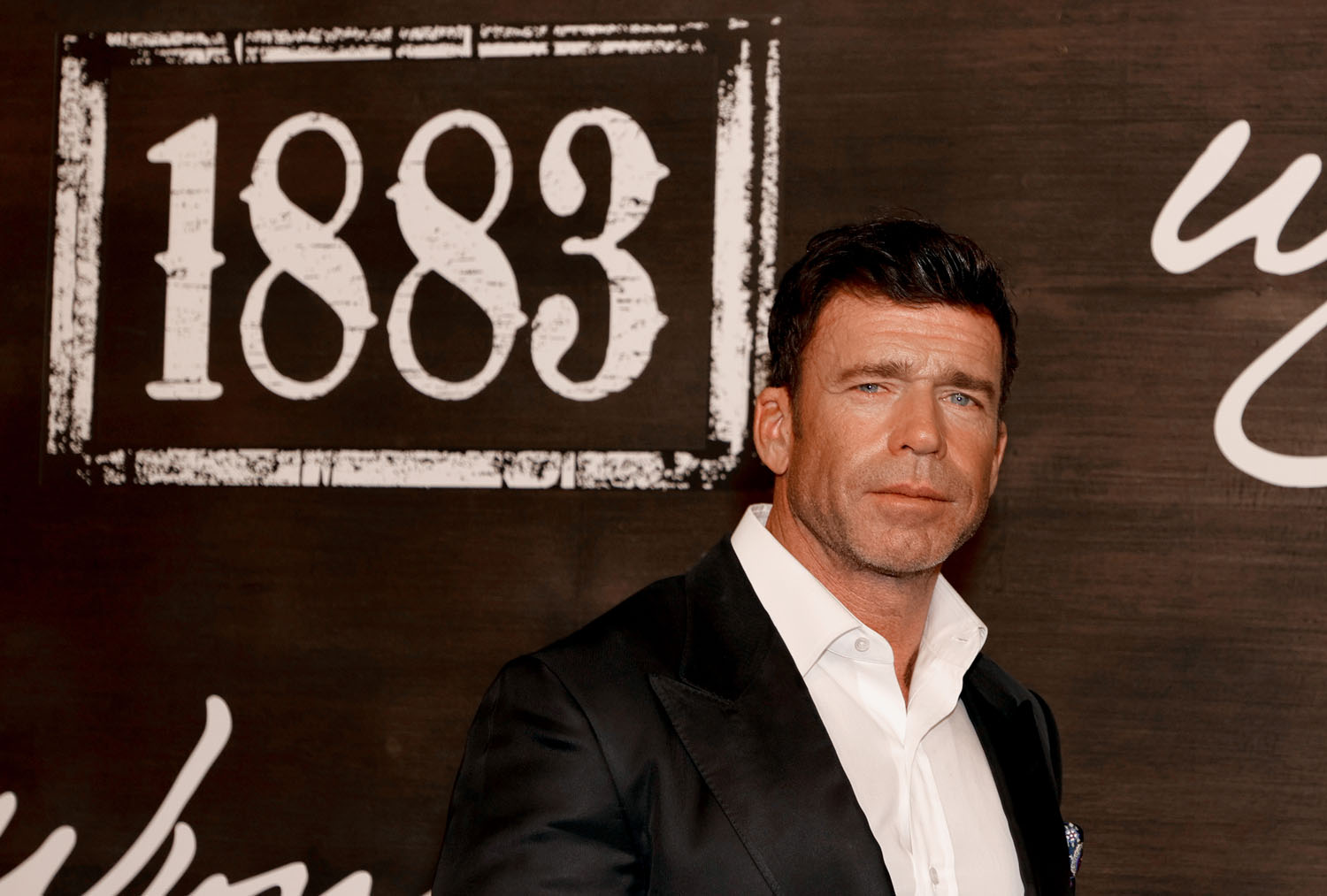Taylor Sheridan’s Americana



Taylor Sheridan emerged in the 2010s as one of the leading voices in the neo-Western revival in American cinema, writing screenplays for Sicario and its sequel, Sicario: Day of the Soldado, and Hell or High Water, for which he was nominated for an Oscar. In 2017 he wrote and directed the noirish neo-Western Wind River, and just last year, he wrote and directed the Angelina Jolie survival thriller, Those Who Wish Me Dead. He also created the Yellowstone television franchise, which has turned him into not just a successful filmmaker, but a super-producer.
What unites Sheridan’s oeuvre is three things: 1) casting Jon Bernthal and inevitably killing off his character; 2) his signature mix of neo-noir and neo-Western genre elements; and 3) a depiction of America that is simultaneously pro-bootstrap and deeply cynical about the systems of power in this country. Taylor Sheridan’s Americana is cowboys and Indians and corrupt banks and crooked cops and a general sense of despair.
Hell or High Water is still Sheridan’s best script, and it features a scene I think about a lot, in which a local banker, Billy (Justified alumnus Kevin Rankin), explains exactly how down-on-their-luck brothers Toby (Chris Pine) and Tanner (Ben Foster) can rob casinos and bank the money in a protected trust to save their family ranch. Billy’s reason for doing this is his distaste for the dirty tactics the bank used to try and leverage Toby and Tanner’s family home away from them—just on the brink of oil drilling commencing, which would bring money to the owner of the property.
Self-reliance is a major theme in Sheridan’s work, whether it’s settlers in the Old West or a couple of good old boys trying to get by the in 21st century, but Sheridan’s vision of self-reliance isn’t pure “pull yourself up by your bootstraps” propaganda because he always acknowledges the systems stacked against his protagonists. In Hell or High Water, it’s the banking industry, and people using the bank to try and steal valuable land out from under the subsistence farmers that have worked that land for years. In Wind River, he is aware of the gap between white and Native residents around the borders of a reservation, and of the problems that plague mining and drilling operations in those areas, with a large transient workforce that makes solving crimes difficult. And in Yellowstone, in which his central protagonists are wealthy, we see how the Duttons, with their large ranch and fingers in many pies, serve to disadvantage those around them. The Duttons are a symbol of Sheridan’s self-reliance, building generational wealth through hard work—and land theft—but they’re also the warning, that they only got there, and stay there, by exploiting the very crooked systems Sheridan laments.
I don’t want to reduce an entire body of work to the red state/blue state political binary, but because Sheridan focuses so often on ranchers and the people occupying the margins of the new West, there is a tendency to dismiss his work as “rare” Hollywood conservatism, but his work is more complex and just plain grumpier than that. If anything, Sheridan’s work has a kind of Gen X “everything sucks” vibe, but he rejects the follow-up sentiment of “there’s no point in doing anything”. In Sheridan’s world, you can always do something. You can lie, cheat, and/or steal—or even kill—your way to your goals. His work is pro self-reliance by way of “do crimes”, though he’s not naïve, there is always a cost for crossing that line in Sheridan’s world. Sometimes, his crooks get away with it, but they feel the moral weight of their actions.
To return to Hell or High Water, the sharpest distillation of Sheridan’s ideals, poverty is a sickness that plagues families, but the weight of the crimes committed to “cure” that sickness is just as inescapable. Yellowstone and its prequel, 1883, also make this clear. The Duttons got rich at the expense of others, they stay rich at the expense of others. They haven’t been toppled yet because no one is willing to play dirtier than them. It’s a bleak view of America, one that suggests an individual can change their circumstances on a small scale; but America, represented by the Duttons, can’t be upended through the same means, because they have mastered the crooked game better than anyone. The systems are broken, and will stay broken, and all the little people can do is scramble for what they can grab without waking the sleeping bear of America’s upper class, which will literally skin them alive to maintain power.
The Sicario films depict a similar sentiment, though they are bogged down too much in the violence of retribution. Sicario and Day of the Soldado glorify extrajudicial justice, which is where Sheridan’s brand of self-reliance becomes messy. Wind River also revels in extrajudicial violence, and while encouraging audiences to believe that white law enforcement will ever best serve Native America would be naïve, and Taylor Sheridan isn’t naïve, positing that a lone angry white man with a personal connection to the Native community can “get the job done” isn’t much better.
Sheridan’s depiction of Native Americans exposes the blind spots in his brand of Americana. He is aware enough to grasp some of the issues surrounding Native America—land back, systemic poverty, exploitation by white America for land and resources, missing and murdered Indigenous women—but as yet, he has not invited a Native filmmaker to collaborate with him. He often works with the same Native actors—Gil Birmingham stars in Hell or High Water, Wind River, and Yellowstone—but he is not giving equal voice to those characters. Yellowstone would only benefit from having Native voices involved in writing and/or directing episodes, but one thing about Sheridan, he seems to like his image as a lone wolf auteur, too busy with his Texas ranches to bother with Hollywood bullsh-t, to share creative space with other voices and admit, even tacitly, that he isn’t the master of every story. He no longer directs every episode of Yellowstone, but he remains very much in control of it, to the show’s detriment.
(Also, Sheridan has cast Kelsey Asbille in a couple of projects now, including Yellowstone where she plays one of the most prominent Native characters. Asbille claims Eastern Band Cherokee descent on her mother’s side, but the Eastern Band Cherokee tribe has no record of her ever being enrolled, or of anyone from her family being enrolled. Earlier in her career, she was credited as Kelsey Chow; since 2017, when she appeared as a Native woman in Wind River, she has been credited as Kelsey Asbille. Doesn’t seem great, Bob.)
Taylor Sheridan’s depiction of self-reliance is complicated by the boundaries set by systemic issues of poverty and race. His characters fit very much into the Western mold of self-reliant masters of their domain, but instead of portraying a string of heroes boot-strapping their way to victory, Sheridan populates his Western landscapes with liars and cheats, and the rich characters are the worst liars and cheats of them all. Sheridan’s work is steeped in cynicism, and it’s not so much conservative as it is bleakly accepting that the systems of power are too entrenched to change for the betterment of society. Instead, most people are left scrambling for scraps in the marginalia of modern American life, while wealthy people like the Duttons bear generations of sins to stay on top of the heap. There is no sense of celebration about this way of life, no sense that this is order is right and good, no sense that if we’re just patient enough, some of the Duttons’ wealth will trickle down to everyone else. There is only that which you can do for yourself, even if it means stealing or killing to get some of your own back—the true American way.

